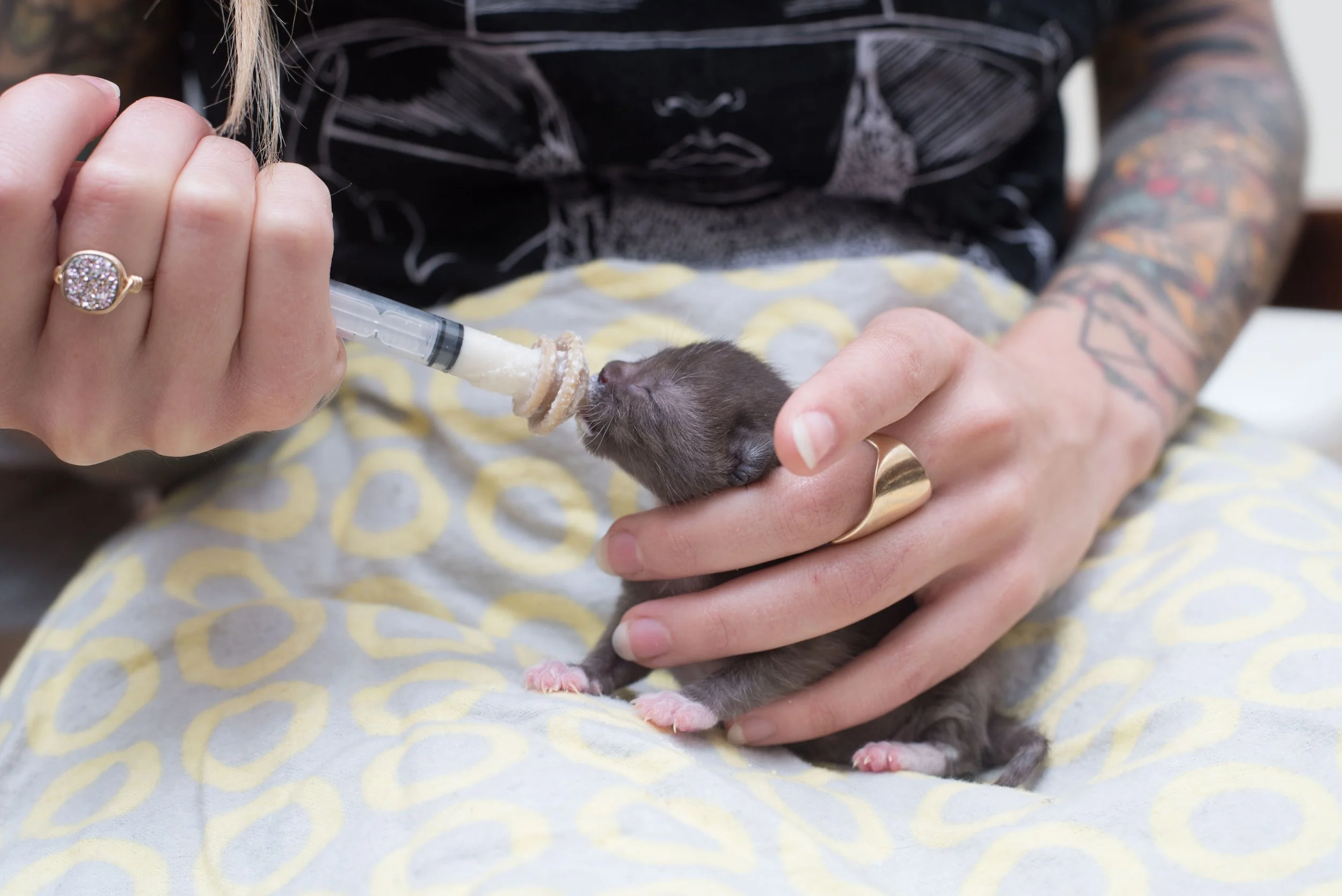Diarrhea
If you're caring for kittens who have diarrhea, please take it seriously. Loose, liquid stool is not normal for kittens and should be addressed within the day. Diarrhea might not seem like an emergency, but it can indicate something more serious, and its side effects can quickly lead to decline or even death in young kittens. When dealing with diarrhea, you'll want to treat both the cause and the associated symptoms.
Always consult a veterinarian to diagnose and treat your kitten's specific needs. There is no substitution for a visit with a vet.
Diarrhea Causes and Treatment
Diarrhea can occur for a number of reasons, and you'll need to determine the cause in order to determine the proper treatment. This may involve getting a fecal analysis from a veterinarian to track down the culprit. Here are some common causes of diarrhea in kittens:
Parasites
There are a wide variety of parasites that can impact kittens, and it’s important to understand that there is not one antiparasitic medication that treats them all. For this reason, fecal examination with a veterinarian is the best way to get a proper diagnosis and treatment plan.
Due to their ubiquity in kittens, most rescues and shelters will treat prophylactically for the most common internal parasites such as roundworms and hookworms with a standard dewormer such as Pyrantel pamoate. However, kittens can have other parasites such as tapeworms or protozoan parasites like giardia and coccidia, which are also quite common in kittens and can cause significant health issues if left untreated. Once you have a fecal examination, you'll be able to quickly treat the kitten for the specific parasite. Always bring kittens in for a fecal exam if diarrhea is present for 2 or more bowel movements; acting fast can provide quick relief and save their lives.
Bacterial Infections
Kittens may also develop diarrhea due to bacterial imbalances or infections of the gut. These infections are generally diagnosed by a fecal PCR test, which can tell you which bacteria is present, such as salmonella, e.coli, campylobacter, or others. Once you have a diagnosis, your veterinarian can prescribe an appropriate antibiotic to help the kitten recover.
Viruses
Certain viruses may also cause diarrhea. In kittens, a sudden onset of liquid diarrhea can be a symptom of panleukopenia—a highly contagious, acute virus which is treatable, but fatal when left untreated. If a kitten has sudden severe diarrhea accompanied by other symptoms such as vomiting, blood in the stool, or a high fever, please bring the kitten immediately to a veterinarian who can test her for panleukopenia. A diagnosis, treatment plan, and supportive care can save the kitten's life if fast action is taken.
Food Issues
If you're concerned about a kitten's stool, make sure it isn't an issue with the food she is eating. Be sure that bottle fed kittens are receiving the right kind of formula and are not receiving any cow's milk or other dairy products. If the formula is expired, was left out of the refrigerator, or may be spoiled, throw it away and try with a fresh container.
Kittens can develop diarrhea when there is a change in diet, so if you've recently started the kitten on a new formula, that may be the issue. Premature weaning onto wet food may also cause diarrhea, as the body may not be ready to absorb the new proteins and complex nutrients found in meat. If you've recently started to wean kittens and you see diarrhea for more than 2 bowel movements, scale back and put them on a simple diet of formula to see if the body just needs more time to adjust. Watch my video on the dangers of premature weaning!
Supportive Care for Diarrhea
Treating the cause of diarrhea is essential to ending it. But regardless of the cause, you'll also need to treat the most deadly symptom of diarrhea: dehydration. Dehydration happens quickly with kittens exhibiting diarrhea, and it can lead to a domino effect of medical issues.
One way to help address hydration in kittens with diarrhea is to provide an electrolyte solution in place of water. Rather than mix the kitten's powder formula with water, you can switch to using unflavored Pedialyte.** Pedialyte contains an optimal balance of glucose and electrolytes that will help rehydrate the kitten and keep the muscles and organs functioning properly. Be sure to use a flavorless product and to keep it fresh according to the label's instructions.
For more extreme cases, subcutaneous fluids may be advised. Ask your veterinarian if subcutaneous fluids are right for your kitten, and ask for training to administer fluids safely and in the right amount. In severe cases of dehydration, fluid therapy can save a life.
You may also consider getting the kitten on a probiotic to support GI health.
**Some people have concerns about zinc in Pedialyte. The amount of zinc in Pedialyte (7.8 mg per liter) is nominal, making up a fraction of the daily suggested value, and is not of concern. Zinc is an essential mineral for cats and is only toxic when consumed in large quantities.





